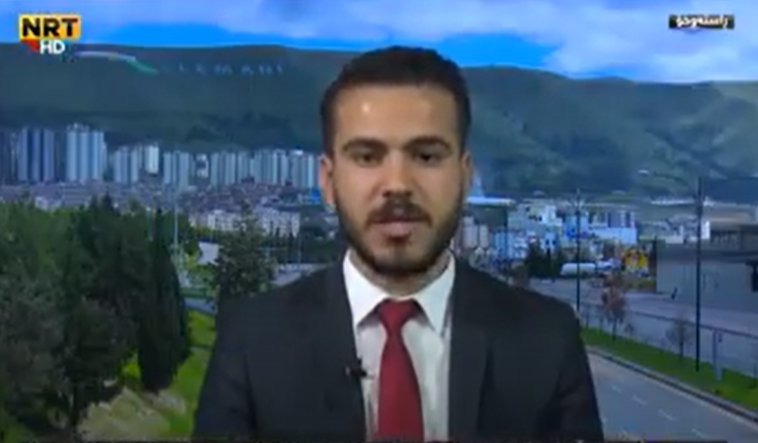New York, September 23, 2021 — In response to an Erbil court’s ruling today to extend the imprisonment of Iraqi Kurdish journalist Omed Baroshky by one year, the Committee to Protect Journalists has called on authorities drop the charges against him and end harassment of reporters.
“Today’s sentencing of freelance journalist Omed Baroshky to an additional year in prison shows that Kurdish authorities in northern Iraq are on a mission to crush press freedom in the region and silence any voices critical of the government line,” said CPJ Middle East and North Africa Representative Ignacio Miguel Delgado. “Authorities should immediately release Baroshky, drop the charges against him, and cease harassing members of the media.”
Authorities first arrested Baroshky in August 2020, briefly released and then rearrested him in September of that year, and on June 22, 2021, sentenced him to one year in jail over social media posts he made that were critical of Kurdish authorities in northern Iraq, as CPJ has documented.
Today, an Erbil court convicted Baroshky on two additional counts of defaming the regional government of Duhok and the Duhok police on social media, and extended his imprisonment by six months for each charge, according to news reports and Ayhan Saeed, a representative of the local press freedom group Metro Center for Journalists’ Rights and Advocacy in Duhok, who spoke to CPJ via messaging app. Separately, the court acquitted Baroshky of a charge of defaming a lawmaker with the ruling Democratic Party of Kurdistan.
According to those reports and Saeed, Baroshky still faces anti-state charges under Article 156 of the Iraqi penal code, and his next court date is scheduled for October 12.
In an email to CPJ on September 29, Dindar Zebari, the Kurdistan regional government’s international advocacy coordinator, said that Baroshky was sentenced to one year in jail on two counts of violating Article 2 of Law Number 6 of 2008, relating to the misuse of communication devices.
Zebari added that Baroshky will also be tried at the Erbil Criminal court on October 12 for violating Article 1 of Law 21 of 2003, part of the Iraqi penal code, and that he had access to legal counsel and weekly calls to his family during his detention.
[Editors’ note: This article has been updated to include Zebari’s response to CPJ.]
